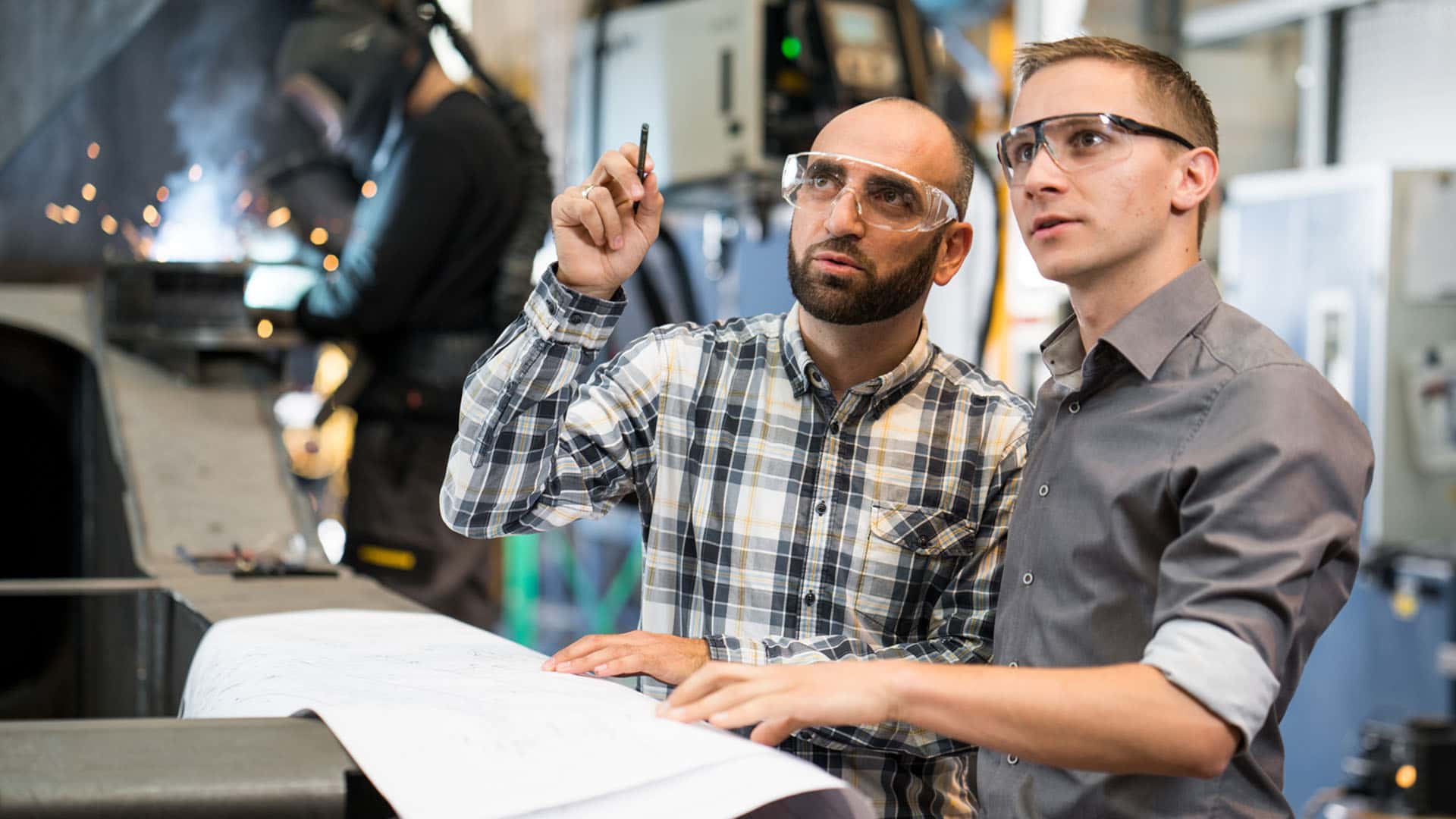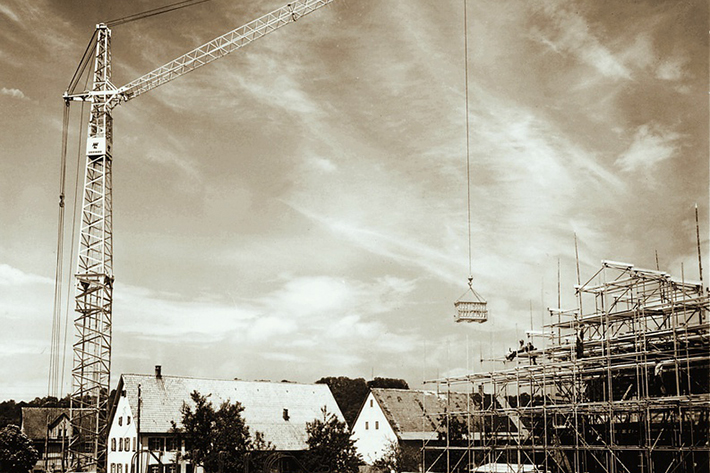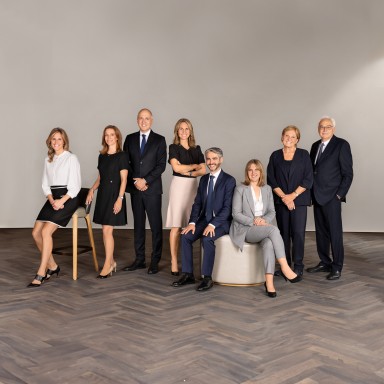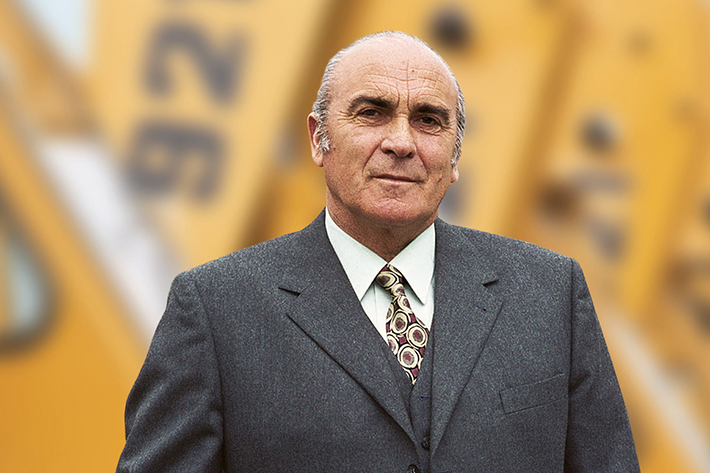 Group
GroupHans Liebherr – Entrepreneur, inventor, visionary
The success story of the Liebherr Group is linked inseparably to the person who founded it. It is the story of Hans Liebherr, a qualified master builder, tireless tinkerer, pragmatic businessman and successful pioneering enterpriser.
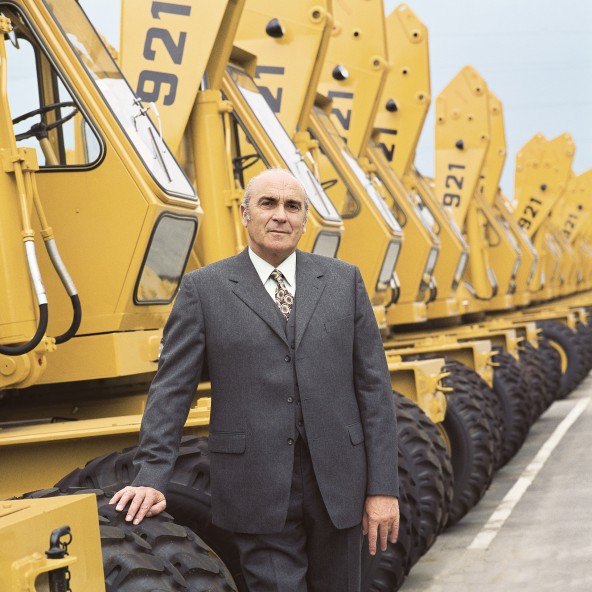
The pioneer - Turning ideas into reality
Hans Liebherr is one of the great pioneers of Germany's post-war economy. Among his groundbreaking inventions are the mobile tower crane and the first hydraulic excavator in Europe: Innovations that have left a lasting impression on the building industry. "His commercial successes are thanks to the ability to pick from a plethora of ideas the right ones at the decisive moment", said the deacon of Aachen's technical university, Prof. Dr. Weyres, as he awarded him an honorary doctorate in 1964. With his developments, Hans Liebherr proved that he had a remarkable flair for anticipating the success of promising products and future markets. As an enthusiastic tinkerer, he did not rest on his laurels. He tirelessly developed new products and, in close co-operation with designers, made them marketable with speed and determination.
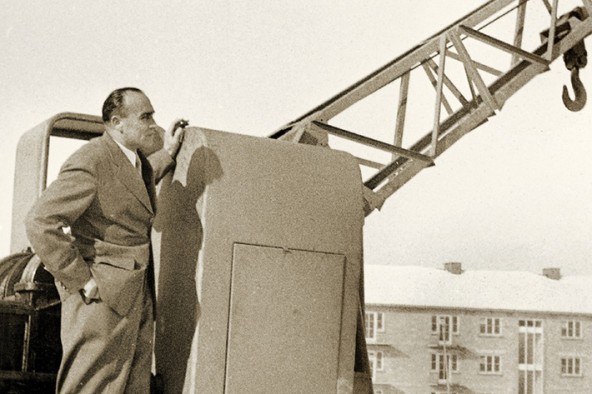
Single-minded - Great stamina
Where the success of his products sometimes took a while to manifest, Hans Liebherr proved that he had staying power. When the first mobile tower crane was presented at the Frankfurt autumn trade fair in 1949, for example, the result was disappointing. "Actually, when the trade fair was over I could have brought my production in crane construction to an end", he remembers. Instead, Hans Liebherr was single-minded in the realization of his plans until the first contracts came in and production began. The enterpriser always looked to the future when doing so. His motto: "With dogged determination it is also possible to achieve what appear to be almost unattainable targets." His single-mindedness and relentless drive for improvement have meant that, today, "Made by Liebherr" stands for quality and high utility value around the world.
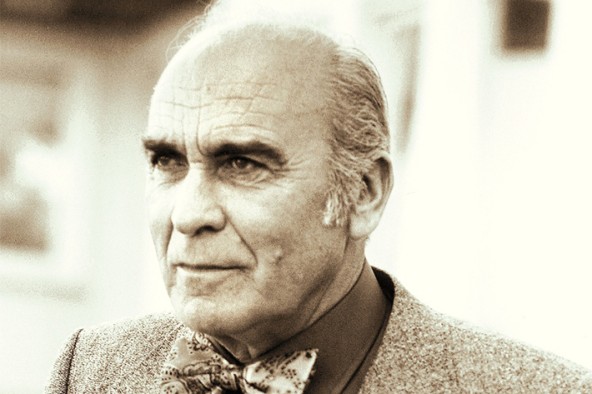
The businessman - Sound cultivation
As an entrepreneur, Hans Liebherr focused on step-by-step expansion without jeopardizing his independence. "I have never actually taken a risk. I never planned beyond the point of poverty." As a consequence, he financed all projects from the outset using own funds. With the exception of frugal withdrawals, the profits remain in the company in order to further optimize research, development, production and sales. This independence enables Hans Liebherr to guide the widely spread Group through fluctuations in the economy and to pursue necessary product developments in the long-term.
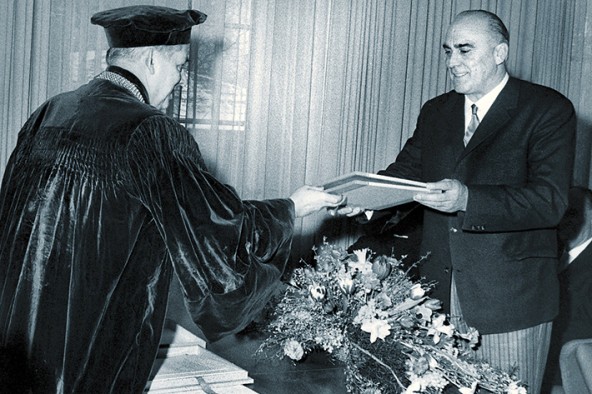
The master builder - Down-to-earth
He is one of the major German entrepreneur personalities of his day and yet remains humble at all times. "Well, as you know, I'm just a master bricklayer", Hans Liebherr says on the occasion of his honorary doctorate award. By the mid 1960s, he had already developed the original small building firm into an internationally leading construction machine manufacturer. As ever, he takes care of his factories personally. His slogan: do it yourself, think for yourself, no long discussions, just do it. He gains an impression on-site, talks at length with staff and then makes a decision quickly, pragmatically and directly. His down-to-earth approach means that he always stays in touch with the needs of his customers.
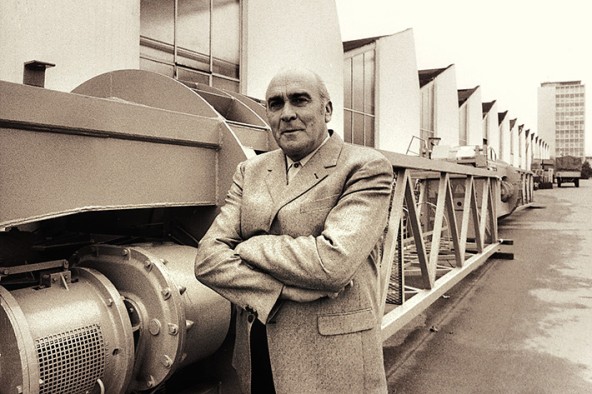
The family enterpriser - Taking responsibility
Since starting at his parents' building firm, Hans Liebherr is well and truly a family enterpriser. "He always wanted everyone to think and take responsibility", Willi Liebherr once said about his father. The same applies, too, for the co-workers. Even though under his management the company grew into an affiliated group, he did not form one big central organization. He focused on developing autonomous company divisions where possible, allowing his employees to take part in the decision process. "Whenever I built a new factory, I also assigned a new management team to it. I don't want a factory being managed from above", the enterpriser stated. After he passed away in 1993, three of his five children assume control. To this day, all partners are family members – by now into the third generation.

